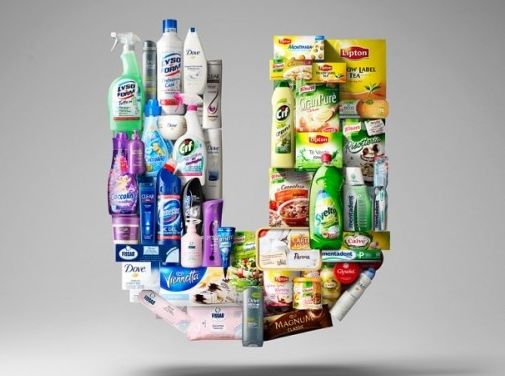
In a keynote at the IAB (Interactive Advertising
Bureau) Annual Leadership Meeting in Palm Desert, Calif. earlier this week,
Unilever CMO Keith Weed noted that the CPG giant wouldn’t advertise on tech
platforms that create societal division or don’t protect children.
Weed later insisted that Unilever does not plan to pull
advertising from these platforms, but will instead open a dialogue with them
behind the scenes to improve the services and earn the public’s trust. Whatever
actions Unilever takes, its move opens up a realm of possibilities for brands
and retailers seeking to take a stand against fake news or racist, sexist and
divisive content.
“This has moved from being from an industry issue to a
societal issue,” said Unilever CMO Keith Weed in an interview with Digiday. “We need to engage in a
much more positive way and encourage them to move faster.”
The RTP team
discusses Unilever’s potential exit from major social platforms, and considers
the decisions retailers and brands face when dealing with fake news/divisive
content on advertising platforms.
Debbie Hauss,
Editor-in-Chief: I’d like to
applaud Unilever for standing up to the likes of Facebook and Google, but it’s
hard to see the light at the end of the tunnel here. Does Unilever really
expect these companies to “clean up” the Internet? They want the
platforms to avoid creating divisions in society or failing
to protect young people, which are noble causes. But the fact is, while I
was reading the article about this on CNN.com, I was treated to ads for
insurance and consumer electronics that I’m sure Unilever wasn’t aware of
and didn’t approve. So, what are these platforms to do? Well, they are
making strides, although the results remain to be seen: Facebook is trying to show users where their
information is coming from as part of a News Feed update. And Google has announced plans to dedicate more than 10,000
employees to tackling extremist content on YouTube in 2018. Will this be enough
for Unilever and other advertisers? Will Unilever really cash in its hand and
stop advertising on these platforms?
Adam Blair, Executive
Editor: Unilever’s threat to abandon digital advertising platforms that
play host to fabricated news, racist, sexist and extremist content sounds like
something to cheer about. The move addresses the double game that Google and
Facebook play: they are hands-off “platforms” with no control over content when
it suits them, but are “publishers” when there’s a buck to be made. So why does
this development make me so uneasy? As a journalist and a citizen, I detest
both fake news and hate speech. But I wonder if profit-making companies like
Unilever, Google and Facebook should be deciding where, exactly, First
Amendment lines get drawn. A Frank Bruni column from the New York Times expresses
his concerns that corporations are taking on roles being abandoned by enfeebled
governments. Unilever has every right to decide where to spend its advertising
dollars — but I didn’t vote for the CEO of Unilever.
Marie Griffin,
Managing Editor: In a recent interview, Keith Weed said the power of social media
platforms to magnify false and incendiary content “has moved from being from an
industry issue to a societal issue,” and I agree. As the fourth-largest advertiser in the world, Unilever has
the power to influence how Facebook/Instagram, Google/YouTube and other social
networks handle content. However, it’s a slippery slope. Plenty of content that
is shared on social platforms is flatly false, but there are numerous nuances
and grey areas. I’m sure most retailers also would prefer to advertise within
positive contexts, but consumers won’t necessarily engage with pretty,
cleaned-up material. Marketers must decide whether to use their ad dollars to
try to keep “divisive” content from the public — potentially preventing it from
being vetted or disputed — but I don’t think it’s a smart media strategy or
a wise move to try to influence the divisions that our larger society must
address.
Glenn Taylor, Senior
Editor: It definitely feels like it’s much easier to stumble upon fake news
or otherwise malicious content in recent years, particularly given the social
media explosion of the past decade. Companies have the right to do whatever
they want with their money. If they feel it’s best used on platforms that share
their views on content, then moves like Unilever’s will at the very least get
social media companies thinking. For now, Unilever’s desire to open a discourse
is a good start. The conversation is a great way to prevent the company from
making any rash decisions, while at the same time understanding the nuance
behind some of the issues they are fighting against. As we all know, there is
inevitably going to be a situation that isn’t black-and-white, with questions
about “What is or isn’t divisive?” likely coming into play. This means
retailers and brands need to ask as many questions as possible before making a
decision here.
Klaudia Tirico,
Features Editor: I am not surprised that Unilever is threatening to pull
adds from Google and Facebook, in fact, I welcome it. They make a strong and
valid point, and it seems to be something that many consumers are aware of.
Last year, a
survey from the CMO Council showed that 48% of consumers said they would abandon brands they love if their ad
runs alongside objectionable online content. With that said, can you blame
Unilever? Liz Miller, SVP of Marketing for the CMO Council, said marketers
“need to ask hard and potentially uncomfortable questions,” when I interviewed
her about the survey. She added, “We need to ask, ‘Have we done an audit of the
ad exchange in placing the ad? Have we put limits on where the exchange can
place our ads?’ Marketers also need to question whether or not it makes sense
to invest in this type of open exchange that may not have any limits.” Seems
like Unilever got the memo and is taking the necessary steps to stay true to its
beliefs.






